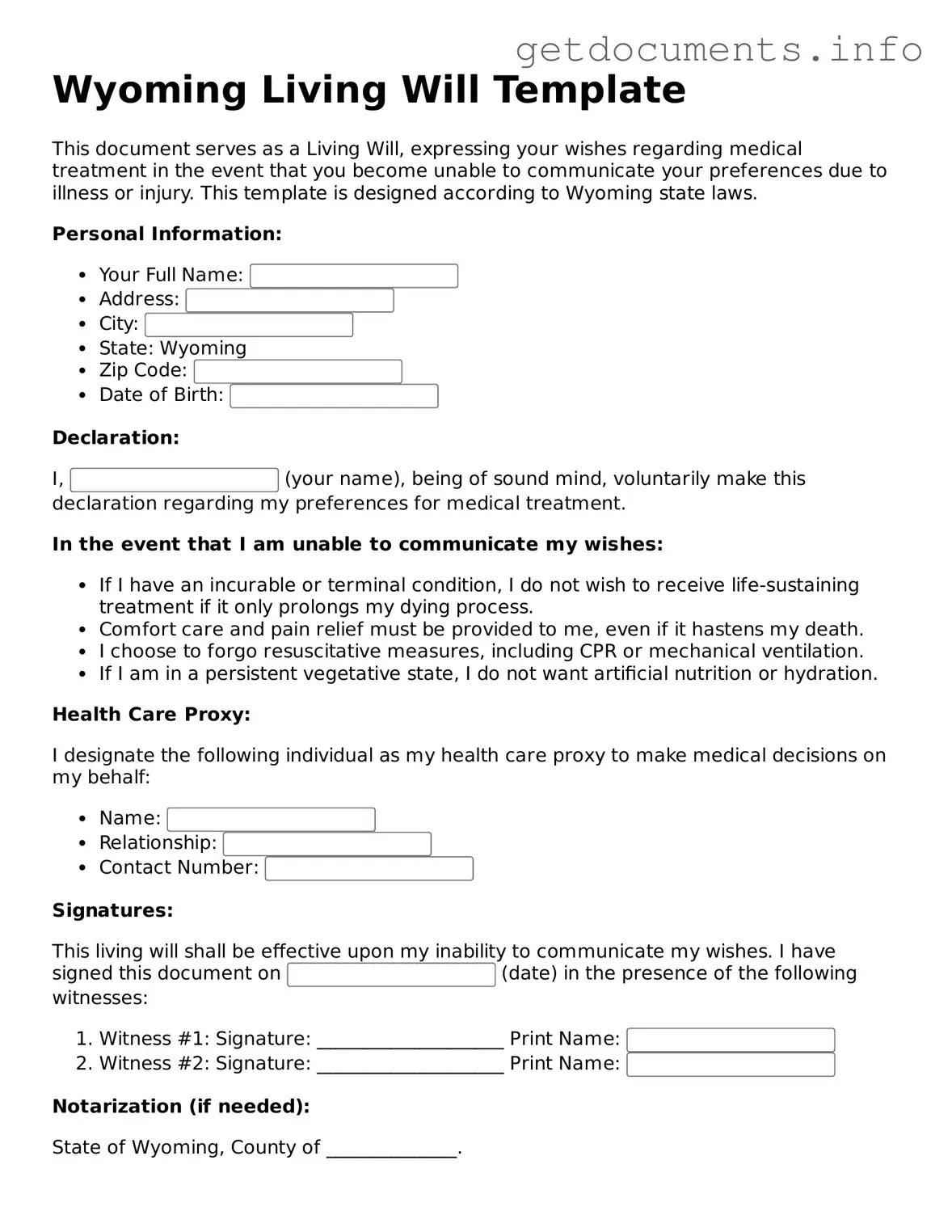Free Living Will Template for Wyoming
A Wyoming Living Will form is a legal document that allows individuals to express their wishes regarding medical treatment in the event they become unable to communicate those wishes themselves. This important form helps ensure that your preferences for end-of-life care are respected and followed. By preparing a Living Will, you take a significant step in safeguarding your rights and ensuring peace of mind for both you and your loved ones.
Take control of your healthcare decisions today. Fill out the Wyoming Living Will form by clicking the button below.
Access Living Will Editor

Free Living Will Template for Wyoming
Access Living Will Editor
Got places to be? Complete the form fast
Fill out Living Will online and avoid printing or scanning.
Access Living Will Editor
or
⇩ PDF File
